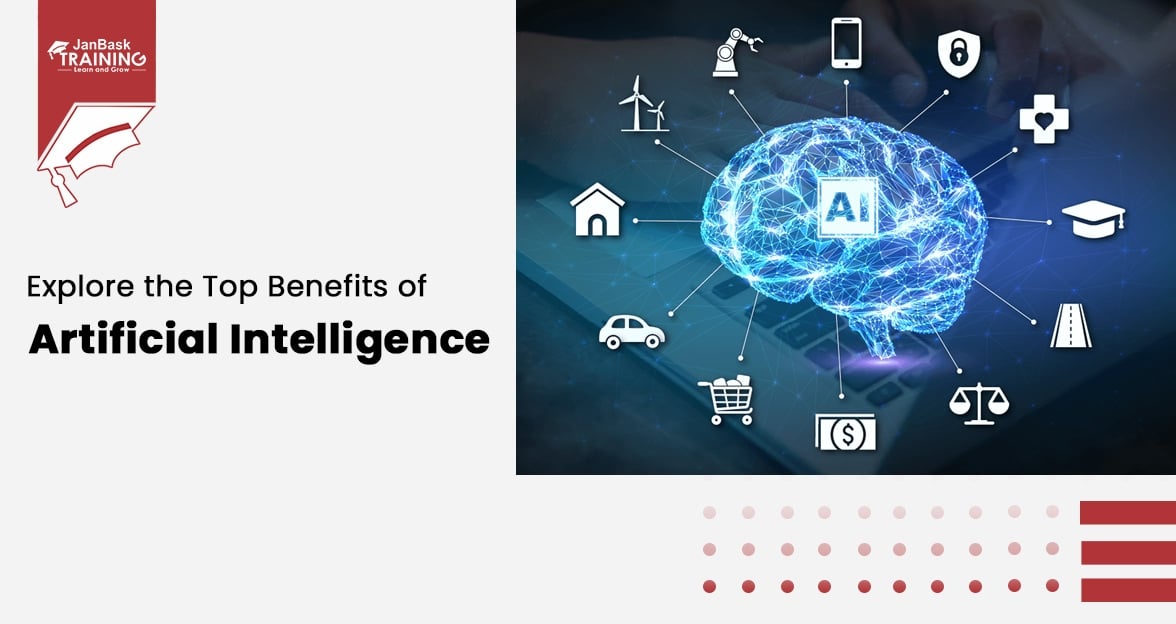Artificial Intelligence refers to the simulation of human intelligence in machines that are programmed to think and learn like humans. It encompasses various technologies such as machine learning, natural language processing, computer vision, and robotics. AI systems can analyze large amounts of data, recognize patterns, make decisions, and continuously improve their performance.
2. Enhanced Efficiency and Productivity
One of the significant advantages of AI is its ability to enhance efficiency and productivity across different industries. AI-powered systems can automate mundane and time-consuming tasks, allowing human workers to focus on more complex and creative endeavors. This automation leads to increased efficiency, reduced errors, and faster completion of tasks.
3. Automation of Repetitive Tasks
AI technology excels in automating repetitive tasks that would otherwise require significant human effort. For example, in manufacturing, robots equipped with AI can perform repetitive assembly line tasks with precision and speed, leading to improved productivity and cost savings.
4. Data Analysis and Insights
AI algorithms can analyze vast amounts of data and identify meaningful patterns and insights that humans might overlook. This capability is particularly valuable in industries such as finance and marketing, where data analysis plays a crucial role. AI-powered data analytics tools can extract valuable information, provide accurate predictions, and help businesses make data-driven decisions.
5. Personalized User Experiences
AI enables personalized user experiences by leveraging data and algorithms to understand individual preferences and behaviors. Online platforms and e-commerce websites utilize AI to recommend products or services tailored to each user's interests. This level of personalization enhances customer satisfaction and increases engagement.
6. Improved Decision-Making
AI systems can process and analyze vast amounts of data quickly, leading to more informed decision-making. For example, in the financial sector, AI algorithms can assess market trends, historical data, and risk factors to provide accurate investment recommendations. This assists professionals in making sound decisions based on comprehensive insights.
7. Predictive Analytics
Through machine learning algorithms, AI can predict future outcomes based on historical data and patterns. This predictive analytics capability is utilized in various industries, such as healthcare, where AI algorithms can predict disease progression or identify individuals at risk. By anticipating future events, businesses and organizations can take proactive measures to optimize their operations.
8. Advanced Healthcare and Medicine
AI has the potential to revolutionize healthcare by enabling advanced diagnostics, personalized treatments, and improved patient care. Machine learning algorithms can analyze medical images, such as X-rays and MRIs, to assist in accurate diagnosis. AI-powered systems can also monitor patient vitals in real-time, detect anomalies, and provide timely alerts to healthcare professionals.
9. Enhanced Customer Service
AI-powered chatbots and virtual assistants have transformed the customer service landscape. These intelligent systems can understand natural language, answer customer queries, and provide personalized support 24/7. By automating customer interactions, businesses can deliver prompt and efficient service, improving customer satisfaction and loyalty.
10. Cybersecurity and Fraud Detection
AI plays a vital role in cybersecurity by identifying and mitigating potential threats and detecting fraudulent activities. AI algorithms can analyze network traffic patterns, identify anomalies, and proactively respond to security breaches. This helps organizations protect their sensitive data, maintain data integrity, and safeguard against cyber attacks.
11. Streamlined Business Operations
AI technology streamlines business operations by optimizing processes, reducing costs, and improving overall efficiency. From supply chain management to inventory control, AI systems can analyze data, predict demand, and optimize operations to minimize wastage and maximize profitability.
12. Virtual Assistants and Chatbots
Virtual assistants and chatbots powered by AI have become increasingly popular in various industries. These intelligent systems can assist with tasks such as scheduling appointments, answering queries, and providing information. By leveraging AI, businesses can automate customer interactions, save time, and enhance user experiences.
13. Innovative Transportation Systems
AI is transforming the transportation industry with the development of self-driving cars and intelligent traffic management systems. Self-driving cars equipped with AI algorithms can analyze road conditions, make real-time decisions, and navigate safely. Intelligent traffic management systems can optimize traffic flow, reduce congestion, and improve road safety.
14. AI in Education
AI technology has the potential to enhance education by providing personalized learning experiences. Intelligent tutoring systems can adapt to individual student needs, identify knowledge gaps, and offer tailored recommendations. AI-powered educational platforms can also provide real-time feedback, track progress, and assist educators in creating personalized learning plans.
15. Ethical Considerations and Future Implications
As AI continues to advance, ethical considerations and potential implications need to be addressed. Questions regarding privacy, bias, and job displacement arise as AI becomes more prevalent. It is essential to develop regulations and ethical frameworks to ensure responsible AI development and deployment.
Conclusion
Artificial Intelligence offers numerous advantages across various sectors, revolutionizing industries and improving our daily lives. From enhanced efficiency and productivity to personalized user experiences, AI technology continues to drive innovation. However, as we embrace AI's benefits, it is crucial to navigate the ethical considerations and ensure responsible AI development for a better future.
For more you can Read these 2 Content By janbasktraining
- Top Advantages of Artificial Intelligence You Don't Want to Miss
- Artificial Intelligence Online Certification Training
FAQs
1. How is AI enhancing productivity in businesses?
AI enhances productivity in businesses by automating repetitive tasks, analyzing data, and providing valuable insights for informed decision-making. This automation allows human workers to focus on more complex and creative endeavors.
2. What role does AI play in healthcare?
AI plays a significant role in healthcare by enabling advanced diagnostics, personalized treatments, and improved patient care. Machine learning algorithms can analyze medical images and monitor patient vitals, assisting in accurate diagnosis and timely interventions.
3. How does AI improve customer service?
AI improves customer service through chatbots and virtual assistants that can understand natural language, answer queries, and provide personalized support 24/7. This automation leads to prompt and efficient service, enhancing customer satisfaction and loyalty.
4. Can AI help in detecting fraud and ensuring cybersecurity?
Yes, AI can help in detecting fraud and ensuring cybersecurity. AI algorithms can analyze network traffic patterns, identify anomalies, and proactively respond to security breaches. This helps organizations protect their sensitive data and safeguard against cyber attacks.
5. What are the potential future implications of AI?
The future implications of AI include ethical considerations, potential job displacement, and the need for regulations. It is essential to address these concerns and develop responsible AI frameworks to ensure the responsible and beneficial use of AI technology.


No comments yet